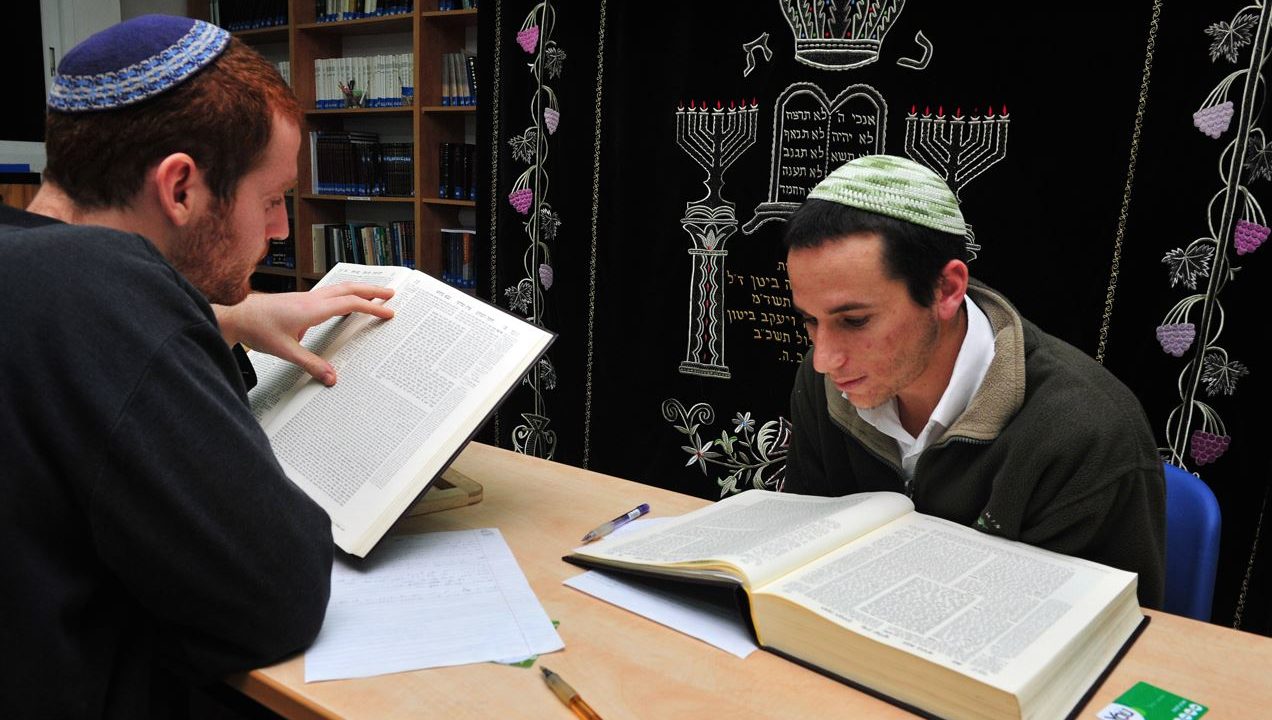Torah and Incarnation
How learning Torah can bridge the gap between man and God.

How can finite man commune with an infinite God? To both Christians and Jews, God himself has made that possible by irrupting into the temporal world. To Christians, God became man in the Incarnation; to Jews, the God that spoke out of the fire on Mount Sinai gave his Torah. Their ways of experiencing God follow from their respective accounts of God’s irruption into the world—and these accounts are profoundly different and reveal profoundly different theological perspectives. To Catholic, Orthodox, and some Protestant Christians, communion involves partaking of the physical real presence of God in the bread and wine of the Eucharist. By contrast, the Torah draws the Jew into engagement with God’s infinite mind. Torah learning is the definitive Jewish mode of communion with God. Although the Torah contains in potential all that God wants to teach us, all the generations of Israel labor together to make this manifest. Because the Torah is infinite and inexhaustible, learning Torah yields new insights—what the rabbis called hiddushim, or innovations. That is how the Torah sustains and renews Israel’s love affair with God. A love nourished by the Torah may seem obscure to Christians, and perhaps even more obscure to loosely affiliated Jews. God loves Israel by sanctifying everyday life—waking, eating, and family relations, along with birth, marriage, and death. We bless God who “has sanctified us with his commandments” in all these actions. But God has made Israel his partner in sanctification by giving a Torah that requires the human mind to engage the mind of God.
Jews seek to cleave to the will of God as set forth in the Bible and, particularly, the Pentateuch, with its rabbinic commentaries, the Mishnah and Talmud. And although the five books of Moses contain history as well as law, it is first of all the legal aspects of the Bible that constitute a bridge to the divine. A Jew’s definitive devotional act is learning “the law.” As the nineteenth psalm puts it: “The Torah of the Lord is perfect, restoring the soul: The testimony of the Lord is sure, making wise the simple. The statutes of the Lord are right, rejoicing the heart: The commandment of the Lord is pure, enlightening the eyes.”
Judaism thus focuses on the commanded word of God, which stands in contrast to Christianity and its turn toward what the Gospel of John calls the “Word made flesh.” Jews focus on the Torah, the embodiment of God’s will; Christians, on an embodied God. At the heart of this distinction are two very different answers to the question faced by all faiths: How does finite, physical, fallible man relate to an infinite, immaterial, and almighty God?
Continue reading at First Things.
How learning Torah can bridge the gap between man and God.
How learning Torah can bridge the gap between man and God.

